Trauma-informed care is a treatment approach that recognizes the profound impact of trauma on mental health and addiction. By fostering a safe and supportive environment, trauma-informed care helps individuals address both the psychological effects of trauma and their addiction, creating a path toward holistic healing.
Trauma often plays a significant role in the development of addiction. Many individuals turn to substances as a way to cope with the emotional pain and distress caused by traumatic experiences.
At its core, trauma-informed care shifts the focus from “What’s wrong with you?” to “What happened to you?” This fundamental change in perspective allows for a more compassionate and effective treatment process. It integrates practices that promote safety, trust, and empowerment, providing individuals with the support they need to heal from traumatic experiences. This approach is widely used in addiction treatment to address both substance use disorders and underlying trauma, recognizing that these issues are often interconnected.
Trauma-informed care uses several evidence-based therapeutic techniques to support healing and recovery, including:
Safety: Creating an environment where patients feel physically and emotionally secure.
Trustworthiness and Transparency: Building trust with patients through clear communication and consistency.
Peer Support: Encouraging shared experiences and connections with others who understand trauma.
Collaboration and Empowerment: Engaging individuals in their treatment plan to foster empowerment.
Cultural Sensitivity: Respecting each patient’s cultural background and experiences as part of personalized care.
Call for Help Today:

If you’re currently struggling with drugs or alcohol, that addiction is life threatening. Drug and alcohol detox gets you clean or sober, using either a social approach where you quit and go through withdrawal, or a medication assisted treatment program.
Asana Recovery uses both options, which will be recommended based on the amount of substance you’re using, which substances you’re using, and your mental and physical health.
Detox normally involves staying at our clinic where you can be monitored and given the medical attention to move through withdrawal safely.

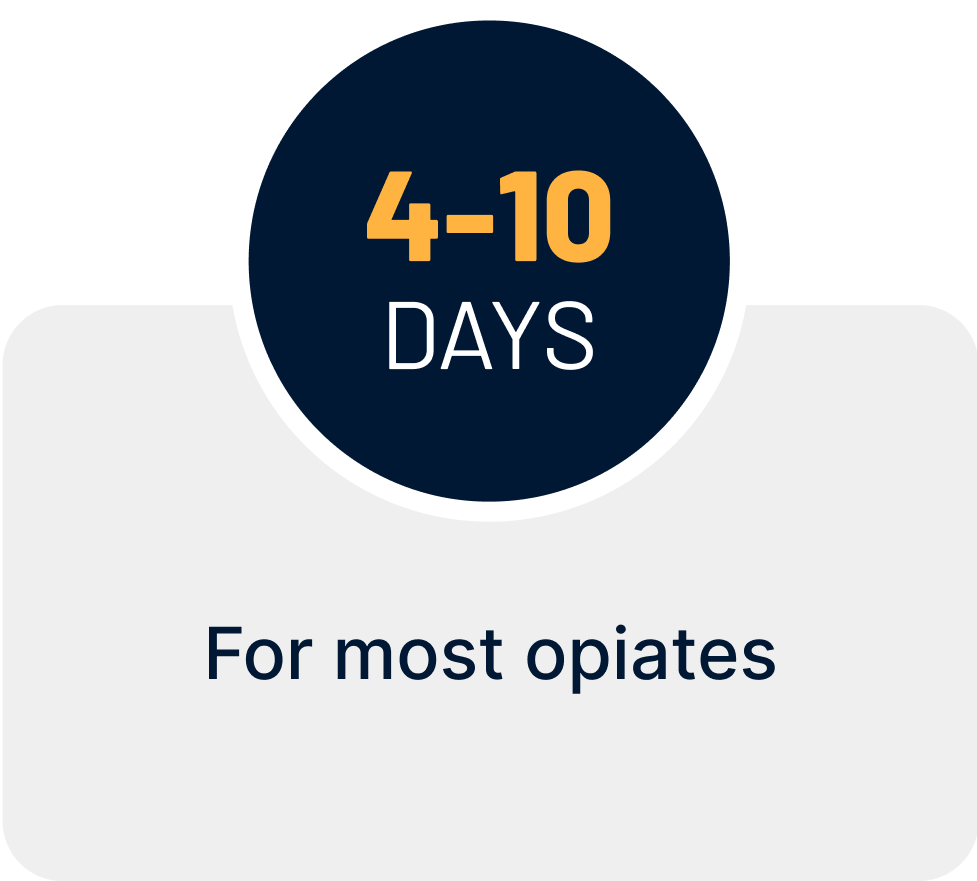
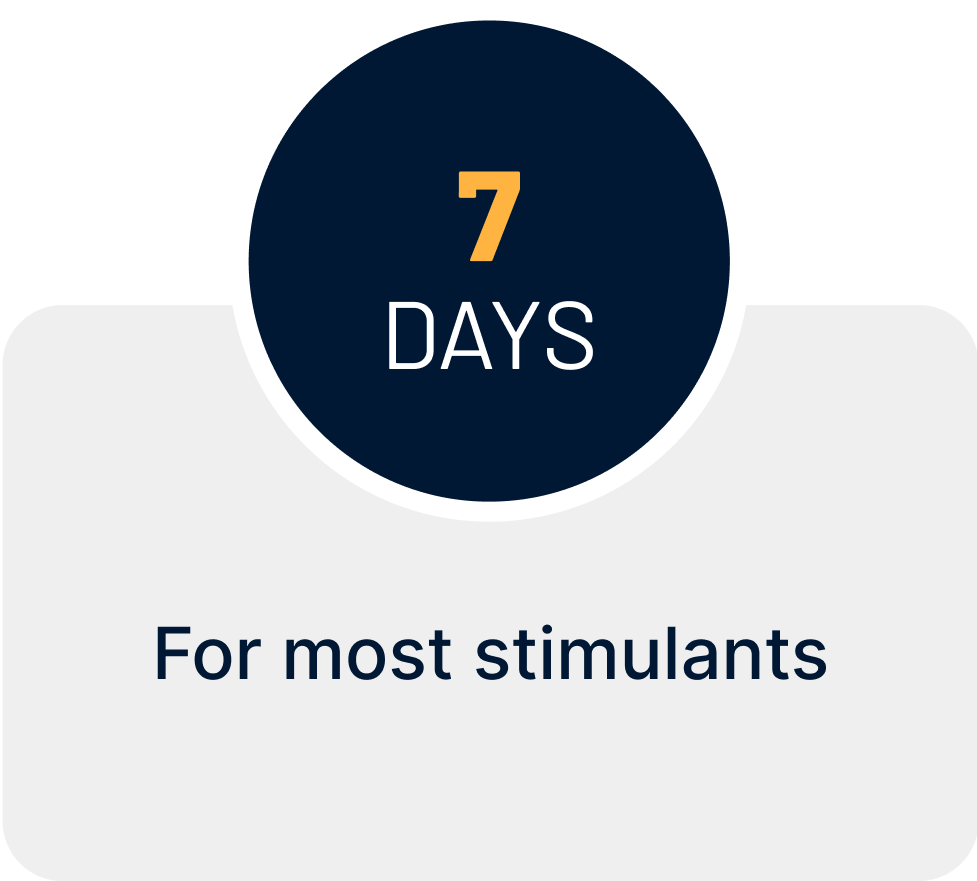
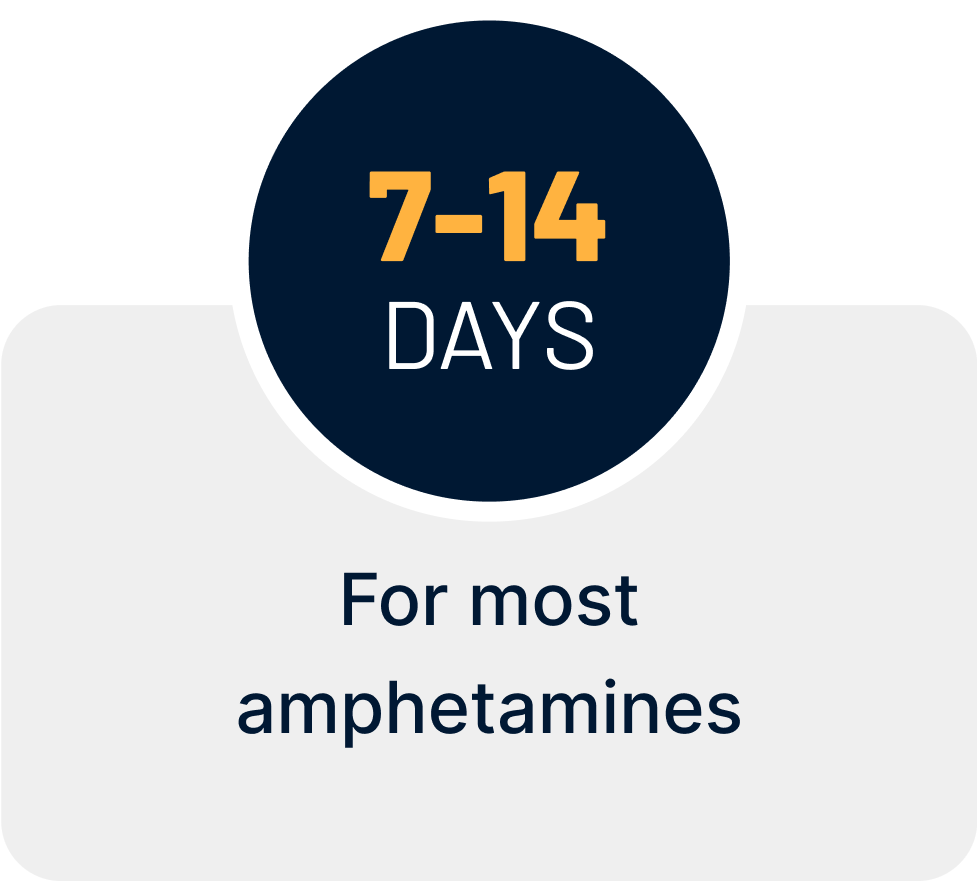


In addition, if you’re addicted to a benzodiazepine, you may be asked to go onto a tapering schedule. This can significantly extend the detox period, because you will sometimes spend several weeks on detox instead of the standard 7-14 days.
Asana Recovery provides intimate residential treatment in Orange County, California, with no more than 6 clients per facility to ensure highly personalized care. Our comprehensive treatment approach combines evidence-based therapies with holistic healing methods to address addiction and co-occurring mental health disorders
Our program utilizes multiple therapeutic modalities including Cognitive Behavioral Therapy (CBT), Dialectical Behavior Therapy (DBT), group therapy, and family therapy sessions. These core treatments are enhanced by holistic therapies such as art therapy, yoga, mindfulness practices, and recreational activities. Their biological, psychological, and social (BPS) approach creates an integrated healing environment where clients can develop essential recovery skills while receiving individualized attention from the clinical team.

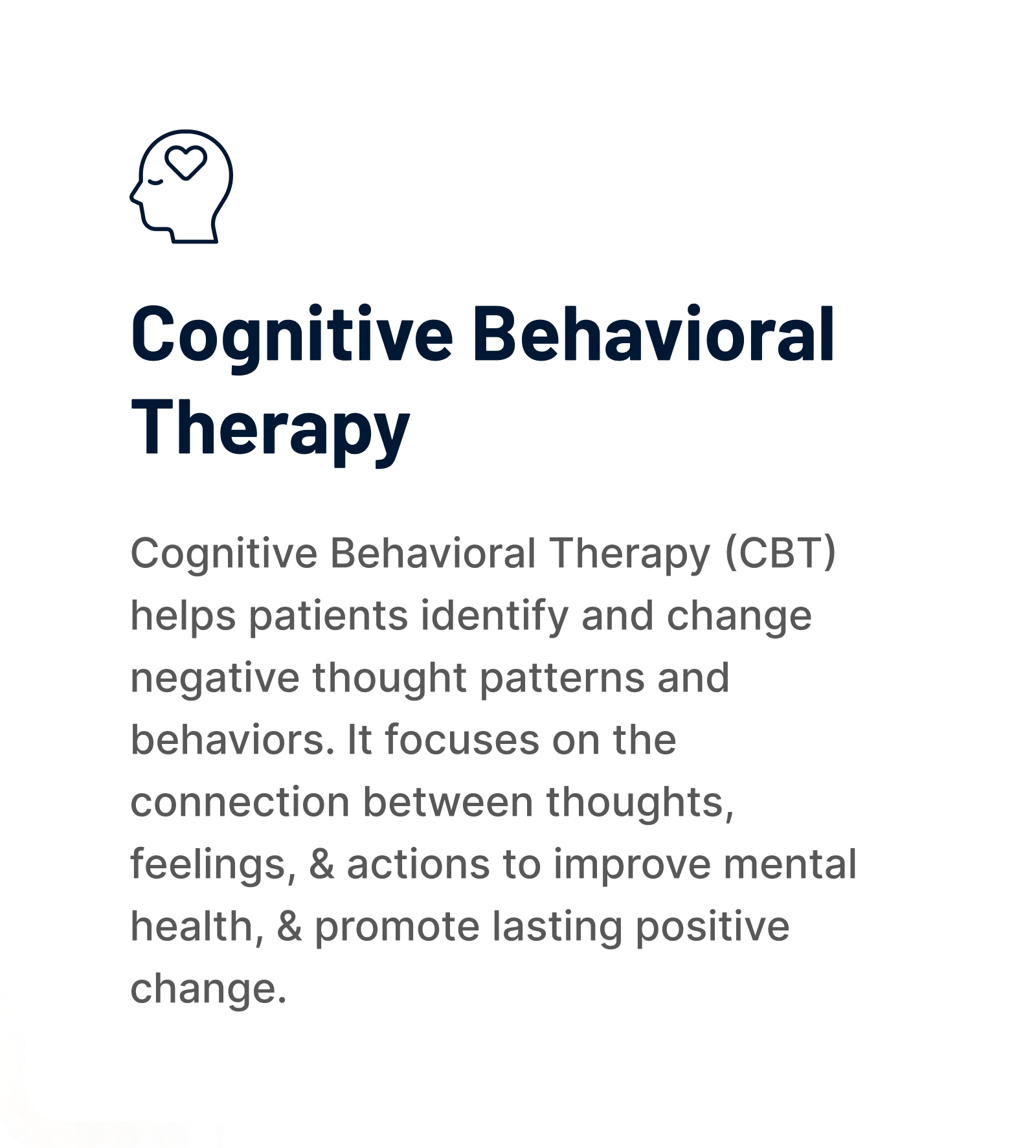

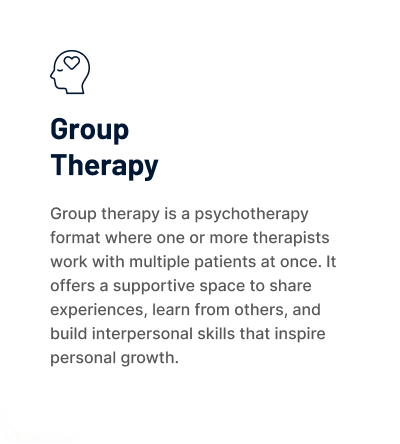
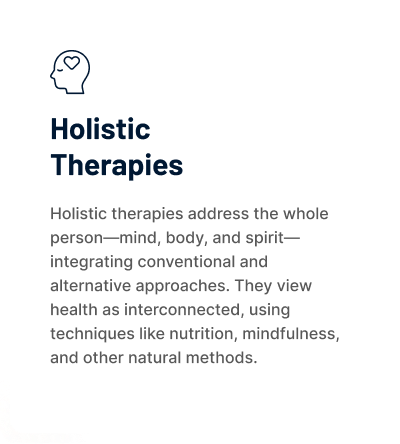


Research shows that approximately 50% of individuals with substance use disorders have co-occurring mental health conditions. This high rate of comorbidity requires an integrated treatment approach, as both conditions significantly impact each other. When mental health issues go untreated, substance abuse typically worsens, and conversely, substance use can exacerbate mental health problems.
Many individuals develop substance use problems while attempting to self-medicate symptoms of depression, anxiety, or trauma. Studies indicate that only 8.3% of adults with co-occurring disorders receive integrated treatment for both conditions
The most effective approach is concurrent treatment of both mental health and addiction by the same clinical team, which leads to better outcomes, reduced relapse rates, and improved long-term recovery success.

Research shows that addressing physical health and nutrition during substance use disorder treatment is crucial for recovery success. Poor nutrition and physical health issues can lead to treatment dropout and increased relapse risk, while improvements in physical health enhance motivation and quality of life during addiction treatment.
Substance use typically leads to nutrient deficiencies, damaged organs, decreased immunity, and poor eating patterns. These issues can threaten both physical and mental health, impacting vital organs and the nervous system. Additionally, different substances affect nutrition and metabolism differently – opioids impact gastrointestinal function, stimulants reduce appetite, and alcohol can cause severe nutritional deficiencies.
Treatment at Asana Recovery includes a nutritional assessment, balanced meals, and physical health monitoring to support healing and maintain long-term recovery.

Research shows that addressing spiritual health during substance use disorder treatment is a significant factor in recovery success. Studies indicate that spirituality can be approached through various pathways, including traditional 12-step programs like AA, secular programs like SMART Recovery, or holistic approaches that integrate mind, body, and spirit connections.
While AA emphasizes spiritual awakening as a key recovery mechanism, SMART Recovery offers a science-based alternative that allows individuals to incorporate their own spiritual beliefs as they see fit. Holistic approaches acknowledge that spiritual wellness, alongside physical and mental health, plays a vital role in comprehensive healing
Studies demonstrate that individuals who engage in spiritual practices during treatment show better outcomes, regardless of their chosen spiritual path. The key is providing options that respect individual beliefs.
A mental health disorder will almost always mean that you need long-term care and treatment to stay in recovery. At Asana Recovery, we understand that you should always have someone to talk to in case things go wrong. Mental health disorders will always mean that you will have bad days, you are more vulnerable to relapse, and you need ongoing mental healthcare and counseling. Asana Recovery can help you on this journey, offering support, ongoing counseling, and help finding local support groups.
Every aspect of dual diagnosis treatment has to be personalized to treat your specific mental health problems, as they impact you when you move into treatment and as you progress through treatment. At Asana Recovery, we take that seriously.


Partial Hospitalization Program (PHP) is an intensive outpatient treatment option that bridges the gap between inpatient care and traditional outpatient services. The program typically operates 5-7 days per week, with sessions lasting 4-6 hours daily, providing a minimum of 20 hours of weekly treatment.
During PHP, patients receive comprehensive care including individual therapy, group therapy, medication management, and psychiatric services while returning home each evening. This allows them to maintain daily responsibilities while receiving structured treatment. The program is ideal for individuals who have completed inpatient care, need more support than traditional outpatient treatment, or have a stable living environment but require intensive therapeutic intervention.
Intensive Outpatient Program (IOP) is a structured treatment option that bridges the gap between inpatient care and traditional outpatient services. The program typically provides 9-19 hours of weekly treatment while allowing clients to maintain their daily responsibilities like work, school, or family obligations.
IOP offers comprehensive care through various therapeutic interventions, including individual counseling, group therapy, family therapy, and psychoeducation sessions. Treatment focuses on substance use disorders, mental health conditions, or co-occurring disorders that don’t require 24-hour supervision or medical detoxification..

Start your recovery journey with us at Asana Recovery, where we prioritize your well-being and provide a welcoming environment for you to heal.
Begin your healing journey today. Fill out the confidential form to find out if your insurance covers you for treatment.
Trauma and addiction are intricately linked, forming a cycle that can be difficult to break without proper intervention. Research reveals that individuals who experience trauma—whether through abuse, neglect, violence, or other distressing events—are significantly more likely to develop substance use disorders. For many, substances like drugs or alcohol become a way to self-medicate, dulling the emotional pain and distress caused by unresolved trauma. This coping mechanism, however, often leads to dependency and addiction, further complicating their struggles. For example, studies show that up to 75% of individuals seeking addiction treatment have a history of trauma, highlighting the profound impact of these experiences on substance use behaviors.
Childhood trauma, in particular, plays a critical role in shaping future addiction risks. Adverse Childhood Experiences (ACEs), such as physical or sexual abuse, neglect, or witnessing violence, can disrupt brain development and emotional regulation. This increases vulnerability to substance use later in life as individuals seek ways to manage the lingering effects of their early traumas. Without addressing the root cause—trauma—many find themselves caught in a cycle of addiction that traditional treatment approaches may struggle to resolve.
Trauma-informed care is an innovative approach that recognizes the deep connection between trauma and addiction. Rather than focusing solely on treating the symptoms of substance use disorder, this method addresses the underlying trauma that often fuels addictive behaviors. The foundation of trauma-informed care lies in understanding the question “What has happened to this person?” rather than “What is wrong with this person?” This shift in perspective fosters empathy and creates a safe environment for healing.
The significance of trauma-informed care in addiction recovery cannot be overstated. It acknowledges how past traumatic experiences influence an individual’s ability to engage with treatment and maintain long-term sobriety. By addressing both the addiction and its root causes, trauma-informed care provides a holistic pathway to recovery. This approach reduces the risk of re-traumatization during treatment and empowers individuals to process their past experiences while building skills for a healthier future. Techniques like Cognitive Behavioral Therapy (CBT), Eye Movement Desensitization and Reprocessing (EMDR), and mindfulness-based therapies are commonly used within this framework to help clients heal from both trauma and addiction.
At Asana Recovery, the connection between trauma and addiction is not just acknowledged—it is central to their treatment philosophy. Asana Recovery specializes in providing trauma-informed care tailored to meet the unique needs of each individual. Their approach integrates evidence-based therapies with compassionate support to address both addiction and co-occurring trauma effectively.
Asana Recovery’s programs include cutting-edge techniques like EMDR for processing traumatic memories and Dialectical Behavior Therapy (DBT) for emotional regulation. These therapies are complemented by holistic practices such as yoga, creative arts therapy, and experiential activities designed to promote overall well-being. The goal is not just sobriety but sustainable recovery through healing at every level—physical, emotional, and psychological.
What sets Asana Recovery apart is their commitment to creating a safe and supportive environment where clients feel empowered to confront their past without fear of judgment or re-traumatization. Their team of trained professionals understands the complexities of trauma and addiction, ensuring that every step of the recovery journey is handled with care and sensitivity.
Trauma-informed care (TIC) is an approach that recognizes the widespread impact of trauma on individuals and integrates this understanding into various care practices. It emphasizes creating a safe, supportive environment that fosters trust and collaboration between caregivers and clients. The foundational principles of TIC include safety, trustworthiness, peer support, collaboration, empowerment, and cultural sensitivity. By prioritizing these elements, TIC aims to enhance the overall well-being of individuals who have experienced trauma, ensuring that their needs are met holistically.
Understanding the neurological and emotional effects of trauma is crucial for implementing effective trauma-informed care. Trauma can significantly alter brain function and emotional regulation. The hypothalamic-pituitary-adrenal (HPA) axis, which regulates stress response, can become dysregulated in individuals who have experienced trauma. This dysregulation leads to heightened stress responses, making individuals more susceptible to anxiety, depression, and other mental health issues.
Additionally, trauma affects the autonomic nervous system (ANS), which controls involuntary bodily functions. Trauma can cause the ANS to remain in a state of hyperarousal or dissociation, impacting an individual’s ability to engage with their environment or manage stress effectively. This altered state can manifest as symptoms such as hypervigilance, emotional numbing, or difficulty forming relationships. Recognizing these neurological and emotional impacts is essential for caregivers to provide appropriate support and interventions.
A critical distinction in trauma-informed care lies in the difference between merely treating trauma symptoms and actively processing trauma experiences. Traditional approaches often focus on symptom management—addressing issues like anxiety or depression without delving into the underlying traumatic experiences that may be contributing to these symptoms. While symptom management is necessary, it does not facilitate true healing.
In contrast, trauma-informed care encourages a deeper exploration of an individual’s trauma history. This approach shifts the narrative from “What is wrong with you?” to “What happened to you?” By fostering an environment where individuals feel safe to discuss their experiences, TIC promotes healing through understanding and processing trauma. This method not only alleviates symptoms but also empowers individuals to reclaim their narratives and develop healthier coping strategies.
In summary, trauma-informed care represents a paradigm shift in how we understand and address the needs of those affected by trauma. By recognizing the profound impact of traumatic experiences on neurological functioning and emotional well-being, TIC provides a framework for healing that goes beyond symptom management to foster resilience and recovery.
The relationship between trauma and addiction is a complex and often troubling one. Substance use disorders (SUDs) frequently co-occur with histories of trauma, creating a cycle that can be difficult to break. This blog explores the prevalence of trauma among individuals with substance use disorders, presents statistics highlighting this co-occurrence, and explains how unprocessed trauma often leads individuals to self-medicate through substances.
Trauma is alarmingly prevalent among those suffering from substance use disorders. Research indicates that a significant percentage of individuals with SUDs have experienced some form of trauma in their lives. Studies show that approximately 70% of adults in the U.S. have experienced a traumatic event at least once, with many of these individuals turning to substances as a coping mechanism. The National Institute on Drug Abuse reports that over 50% of individuals with SUDs have a history of trauma, which can include physical, emotional, or sexual abuse, neglect, or exposure to violence.
This high prevalence underscores the need for treatment approaches that consider the impact of trauma on addiction. Traditional models of addiction treatment often overlook these underlying issues, focusing instead on symptom management without addressing the root causes. As a result, many individuals find themselves trapped in a cycle of addiction that is perpetuated by their unresolved trauma.
Numerous studies have examined the co-occurrence of trauma and addiction, revealing striking statistics that highlight this connection. For instance, research published in the Journal of Traumatic Stress found that individuals with post-traumatic stress disorder (PTSD) are more likely to develop substance use disorders, with estimates suggesting that up to 50% of those diagnosed with PTSD also meet the criteria for a substance use disorder.
Moreover, a meta-analysis conducted by the American Psychological Association found that the odds of developing an alcohol use disorder are nearly three times higher for individuals who have experienced trauma compared to those who have not. This correlation is not limited to alcohol; similar patterns emerge with other substances, including opioids and stimulants.
These findings illustrate the critical need for integrated treatment approaches that address both trauma and addiction concurrently. By recognizing and treating the underlying trauma, healthcare providers can help break the cycle of addiction and promote long-term recovery.
The phenomenon of self-medication is a common response to unprocessed trauma. Many individuals who have experienced traumatic events may turn to substances as a way to numb their pain or escape from distressing memories. This coping mechanism provides temporary relief but ultimately exacerbates their problems, leading to increased dependence on substances.
Unprocessed trauma can manifest in various ways, including anxiety, depression, and emotional dysregulation. Individuals struggling with these symptoms may find themselves using drugs or alcohol as a means to cope with overwhelming feelings or flashbacks related to their traumatic experiences. This self-medication can create a vicious cycle where the temporary relief provided by substances leads to further emotional distress when they wear off, prompting continued use.
Understanding this connection between trauma and addiction is essential for developing effective treatment strategies. Trauma-informed care approaches emphasize creating safe environments where individuals can explore their experiences without fear of judgment or re-traumatization. By addressing both trauma and substance use simultaneously, treatment can facilitate healing and promote healthier coping mechanisms.
Trauma-informed care (TIC) is a transformative approach that recognizes the profound impact of trauma on individuals and integrates this understanding into various care practices. By focusing on safety, trust, collaboration, and empowerment, TIC aims to improve outcomes for those affected by trauma. This approach is built upon several key principles that guide the delivery of care in a way that is sensitive to the needs of individuals with trauma histories.
One of the foundational principles of trauma-informed care is the strengths-based approach. This perspective empowers patients by reframing their symptoms as adaptive responses to past trauma rather than viewing them solely as problems to be fixed. By recognizing that symptoms can be survival strategies developed in response to traumatic experiences, caregivers can foster a sense of resilience and capability within individuals. This shift in narrative encourages patients to see themselves as survivors rather than victims, promoting healing and personal growth.
Creating an environment of safety and stability is critical in trauma-informed care. Before delving into the processing of trauma, it is essential to establish a secure setting where individuals feel physically and emotionally safe. This principle emphasizes that safety must be prioritized before any therapeutic work can begin. When patients perceive their environment as stable and secure, they are more likely to engage in treatment and share their experiences without fear of judgment or re-traumatization.
Another vital aspect of TIC is the commitment to minimizing re-traumatization. Care providers are trained to avoid forcing patients to recount their trauma narratives prematurely, which can lead to further psychological distress. Instead, TIC encourages a gradual approach, allowing individuals to share their stories at their own pace. This principle acknowledges that revisiting traumatic events can be triggering and emphasizes the importance of creating a supportive atmosphere where individuals feel in control of their healing journey.
Lastly, individualized support is paramount in trauma-informed care. Recognizing that each person’s experience with trauma is unique, TIC prioritizes tailoring treatment plans to meet the specific needs of each patient. This personalized approach involves understanding the individual’s background, preferences, and coping mechanisms, ensuring that care is relevant and effective. By focusing on individualized support, caregivers can help patients navigate their recovery paths in ways that resonate with their personal experiences.
Trauma-informed care (TIC) is a transformative approach that recognizes the profound impact trauma has on individuals and integrates this understanding into treatment practices. Asana Recovery exemplifies this model by implementing evidence-based methods such as Seeking Safety, which focuses on teaching coping skills, fostering resilience, and avoiding retraumatization. This holistic approach not only addresses the immediate needs of clients but also lays a foundation for long-term recovery.

At the core of Seeking Safety is the emphasis on teaching clients effective coping skills. Asana Recovery employs various therapeutic techniques to help individuals manage their emotions and behaviors in healthier ways. Clients learn strategies to cope with stress, anxiety, and triggers related to their trauma and substance use disorders. By equipping them with practical tools, Asana Recovery empowers clients to navigate challenges without resorting to harmful behaviors.
Fostering resilience is another critical aspect of Seeking Safety. Asana Recovery creates an environment that encourages clients to build their inner strength and adaptability. Through supportive group therapy sessions and individual counseling, clients are guided to recognize their strengths and develop a positive outlook on their recovery journey. This focus on resilience helps individuals face future challenges with confidence and determination.
A fundamental principle of trauma-informed care is the commitment to avoiding retraumatization. Asana Recovery prioritizes creating a safe and supportive atmosphere where clients feel secure sharing their experiences without fear of judgment. Staff members are trained to recognize potential triggers and respond sensitively, ensuring that treatment does not inadvertently exacerbate past traumas. This careful attention to the therapeutic environment is vital for effective healing.
In addition to Seeking Safety, Asana Recovery incorporates other practices that enhance trauma-informed care. Mindfulness techniques are integrated into daily routines, helping clients cultivate present-moment awareness and reduce anxiety. Mindfulness practices can include meditation, breathing exercises, and guided imagery, all aimed at promoting emotional regulation.
Grounding techniques are also utilized to help clients reconnect with their bodies and surroundings when they feel overwhelmed by traumatic memories or emotions. These techniques may involve sensory experiences like focusing on physical sensations or engaging in creative activities that foster a sense of safety and stability.
Trauma-informed care (TIC) has emerged as a transformative approach in addiction recovery, recognizing the profound impact that trauma can have on individuals struggling with substance use disorders. This model of care shifts the focus from merely treating addiction to understanding the underlying traumas that contribute to these behaviors. As a result, TIC offers numerous benefits that enhance the recovery process.
One of the primary advantages of trauma-informed care is its emphasis on emotional regulation. Individuals with a history of trauma often struggle to manage their emotions effectively, leading to substance use as a coping mechanism. TIC provides tools and strategies to help clients recognize and regulate their emotional responses. By fostering a safe environment where clients can express their feelings without fear of judgment, TIC empowers them to develop healthier emotional responses. This newfound ability to regulate emotions is crucial for maintaining sobriety and preventing relapse.
The integration of trauma-informed principles into addiction treatment significantly reduces the risk of relapse. Traditional treatment methods often overlook the psychological aspects of addiction, focusing solely on abstinence. In contrast, TIC addresses the root causes of substance use by helping clients process their trauma. This holistic approach not only prepares individuals for potential triggers but also equips them with coping strategies to handle stressors without reverting to substance use. As clients learn to navigate their emotional landscapes more effectively, they are better positioned to sustain their recovery over time.
Trauma can severely impact an individual’s ability to form and maintain healthy relationships. TIC promotes improved interpersonal relationships by fostering a sense of trust and safety within therapeutic settings. Clients are encouraged to communicate openly about their experiences, which enhances their ability to connect with others. Through group therapy and peer support initiatives, individuals learn to build supportive networks that are essential for long-term recovery. The skills developed in these settings can lead to healthier interactions outside of treatment, further reinforcing positive behavioral changes.
A critical component of trauma-informed care is the development of healthier coping mechanisms. Clients are taught various strategies to manage stress and anxiety without resorting to substances. These may include mindfulness practices, art therapy, or physical activities like yoga, which not only promote well-being but also help individuals reconnect with their bodies in a positive way. By replacing maladaptive coping strategies with constructive ones, clients can navigate life’s challenges more effectively, contributing to sustained recovery.
Asana Recovery is a prime example of an organization successfully implementing trauma-informed care in addiction treatment. Their comprehensive approach integrates evidence-based therapies such as Cognitive Behavioral Therapy (CBT) and Dialectical Behavior Therapy (DBT) with holistic practices like yoga and mindfulness training. One notable success story involves a client named Sarah, who struggled with both PTSD and substance use disorder following a traumatic event in her life.
Upon entering Asana Recovery, Sarah was introduced to the trauma-informed model that emphasized safety and empowerment. Through individualized therapy sessions and participation in group activities focused on emotional regulation, she gradually learned to address her trauma instead of masking it with substances. Over time, Sarah developed healthier coping mechanisms, improved her interpersonal relationships with family and friends, and significantly reduced her reliance on alcohol.
Today, Sarah is an advocate for trauma-informed care in addiction recovery, sharing her journey and encouraging others to seek help that acknowledges the complexities of trauma. Her story illustrates how TIC not only facilitates healing from addiction but also fosters resilience and personal growth.
Asana Recovery has established itself as a leader in integrating trauma-informed care (TIC) within its treatment programs, recognizing the profound impact that trauma can have on individuals struggling with substance use disorders. This approach is not merely an add-on; it is woven into the very fabric of their treatment philosophy, ensuring that clients receive compassionate, personalized care that addresses both their addiction and the underlying traumas that contribute to their struggles.
At the core of Asana Recovery’s trauma-informed approach is the development of personalized treatment plans. Each client undergoes a thorough assessment that considers their unique history, experiences, and needs. This individualized approach allows for tailored interventions that resonate with each person’s journey, fostering a sense of ownership and empowerment in their recovery process. By shifting the focus from a one-size-fits-all model to one that prioritizes individual experiences, Asana Recovery effectively addresses the complexities of trauma and addiction.
Asana Recovery also emphasizes the use of holistic therapies, such as yoga and art therapy, as integral components of its treatment offerings. These therapies provide clients with alternative avenues for expression and healing, promoting emotional regulation and resilience. For instance, trauma-informed yoga focuses on creating a safe space where individuals can reconnect with their bodies without fear of re-traumatization. Art therapy allows clients to explore their feelings creatively, facilitating deeper insights into their experiences. Such holistic practices complement traditional therapeutic modalities, enhancing overall well-being and recovery outcomes.
Recognizing that many clients present with co-occurring disorders—such as PTSD, anxiety, and depression—Asana Recovery integrates support for these mental health challenges into its treatment framework. This dual-diagnosis approach ensures that clients receive comprehensive care that addresses both their substance use and mental health needs simultaneously. By providing targeted interventions for co-occurring disorders, Asana Recovery helps clients build coping strategies that are essential for long-term recovery.
A hallmark of Asana Recovery’s trauma-informed care model is its commitment to client-centered care, characterized by low client-to-staff ratios. This structure allows for more personalized attention and fosters strong therapeutic relationships between clients and staff. With a focus on collaboration and empowerment, clients are encouraged to actively participate in their treatment plans, which enhances engagement and accountability in their recovery journey. The supportive environment cultivated at Asana Recovery not only promotes healing but also instills confidence in clients as they navigate the complexities of recovery.
Trauma-informed care (TIC) is an essential approach that recognizes the profound impact of trauma on individuals and integrates this understanding into treatment practices. In California, Asana Recovery stands out as a leading provider of TIC, offering tailored programs across various cities. This blog explores the significance of trauma-informed care in Costa Mesa, Orange County, Fountain Valley, and Huntington Beach, highlighting the unique benefits each region offers for recovery.
Costa Mesa is renowned for its accessibility, making it an ideal location for those seeking trauma-informed care. Asana Recovery’s Partial Hospitalization Program (PHP) is particularly beneficial in this city. PHP allows clients to receive intensive treatment while maintaining a level of independence, which is crucial for fostering resilience. The structured environment provided by Asana ensures that clients engage in therapeutic activities designed to address both their trauma and substance use disorders. This dual focus not only aids in immediate recovery but also sets the foundation for long-term healing.
Orange County offers a tranquil environment that enhances the therapeutic benefits of trauma-informed care. The region’s natural beauty contributes to a calming atmosphere, which is essential for recovery. Asana Recovery has established itself as a leader in TIC within this area, providing comprehensive services that cater to the unique needs of individuals dealing with trauma. The integration of evidence-based therapies with holistic practices ensures that clients receive well-rounded support, promoting emotional and psychological healing alongside physical recovery.
In Fountain Valley, trauma-informed care programs are specifically designed to meet local needs. Asana Recovery focuses on creating personalized treatment plans that address the diverse backgrounds and experiences of clients. This tailored approach allows for specialized support that resonates with individuals facing similar challenges within the community. By fostering an environment of understanding and respect, clients are more likely to engage fully in their recovery journey, leading to better outcomes.
Huntington Beach is celebrated not only for its stunning coastal setting but also as an ideal location for trauma-informed recovery. The serene beach environment provides a peaceful backdrop that complements Asana’s holistic approach to treatment. Clients benefit from engaging in outdoor activities and mindfulness practices that promote relaxation and self-reflection. This combination of natural beauty and comprehensive care creates an optimal setting for individuals seeking to heal from trauma while overcoming addiction.
Asana Recovery positions itself as a leading provider of trauma-informed care throughout California. By emphasizing a comprehensive, client-focused approach, Asana addresses the intricate relationship between trauma and substance use disorders. Their commitment to creating safe environments fosters trust and collaboration between clients and providers, essential elements for effective healing. Through evidence-based therapies combined with holistic practices, Asana Recovery exemplifies how trauma-informed care can significantly enhance recovery outcomes across the state.
In conclusion, the integration of trauma-informed care within California’s diverse regions highlights the importance of accessibility, specialized support, and holistic approaches in promoting recovery. Asana Recovery’s commitment to these principles ensures that individuals facing the challenges of trauma and addiction receive the compassionate care they need to thrive.
Your recovery starts with care that truly understands your story. At Asana Recovery, our trauma-informed approach is designed to help you heal from addiction and the underlying traumas that fuel it. By addressing the root causes of your struggles with evidence-based therapies and holistic practices, we empower you to break free from the cycle of addiction and build a resilient, fulfilling life. Whether you’re seeking care in Costa Mesa, Orange County, or nearby regions, Asana Recovery offers personalized treatment plans, a supportive environment, and expert guidance to help you on your path to recovery. Contact us today to schedule a free consultation or verify your insurance and take the first step toward lasting change. Your healing journey begins here.

Trauma-informed care (TIC) comes to life in diverse settings, emphasizing safety, trust, and empowerment to address the impact of trauma on individuals. For instance, in schools, TIC might involve training teachers to recognize and support students exhibiting signs of trauma. A child struggling after witnessing a violent incident might benefit from wellness programs that include counseling and community engagement, creating a supportive environment for healing.
In healthcare, universal trauma screenings have become a cornerstone of TIC. Clinics like Montefiore Health System use such screenings to identify patients’ trauma histories and tailor treatments accordingly. This ensures both physical and emotional needs are met, fostering better patient outcomes.
Organizations like the San Francisco Department of Public Health extend TIC to public health initiatives by training employees and revising policies to prevent re-traumatization. These examples highlight how TIC principles—from creating safe environments to fostering resilience—can transform care across multiple sectors.
Traditional addiction treatment often focuses solely on behavioral changes and managing substance use symptoms, sometimes overlooking underlying psychological factors. Trauma-informed care, on the other hand, recognizes that trauma frequently drives addiction behaviors. This model shifts the focus to understanding and addressing the root causes of substance use.
TIC fosters a safe and empathetic environment where clients feel understood and empowered. Rather than applying a one-size-fits-all approach, TIC tailors treatments to individual experiences, integrating therapies like Cognitive Behavioral Therapy (CBT) and Eye Movement Desensitization and Reprocessing (EMDR) to address trauma directly. By tackling both addiction and its root causes, TIC enhances recovery outcomes and reduces the risk of relapse.
Asana Recovery is a leader in trauma-informed care, offering evidence-based and holistic treatments designed to address both addiction and trauma. Their approach prioritizes creating a safe, supportive environment where clients can heal without fear of re-traumatization. By integrating therapies like EMDR and Dialectical Behavior Therapy (DBT) with holistic practices such as yoga and art therapy, Asana Recovery helps clients achieve sustainable recovery.
What sets Asana Recovery apart is its focus on personalized care. With small client-to-staff ratios, their team can address each individual’s unique needs, ensuring comprehensive support for both mental health and addiction challenges. This commitment to trauma-informed principles positions Asana Recovery as a trusted provider in Orange County and beyond.
Yes, trauma-informed care is highly effective in treating co-occurring disorders, such as addiction alongside mental health conditions like PTSD, anxiety, or depression. TIC integrates treatments that address the interconnected nature of these challenges. For example, Asana Recovery combines evidence-based therapies like CBT with mindfulness techniques to help clients manage emotional triggers while addressing the underlying trauma that contributes to their struggles.
This dual-focus approach ensures that clients receive holistic support, improving both mental health and substance use outcomes. By fostering resilience and equipping individuals with coping strategies, TIC lays the groundwork for long-term recovery and well-being.
Asana Recovery incorporates a range of holistic therapies into its trauma-informed care programs to promote healing on all levels—physical, emotional, and psychological. Yoga and mindfulness practices help clients develop present-moment awareness and manage stress effectively. Art therapy provides a creative outlet for exploring emotions and processing trauma, while recreational activities like hiking and surfing foster physical health and social connections.
Additionally, Asana Recovery emphasizes personalized fitness programs and grounding techniques that help clients reconnect with their bodies. These holistic practices complement evidence-based treatments, ensuring a comprehensive recovery experience tailored to each client’s needs.
Trauma-informed care addresses the underlying trauma that often drives addiction, significantly reducing relapse risk. By fostering a safe environment and teaching clients to identify and manage triggers, TIC equips individuals with healthier coping mechanisms. Evidence-based therapies like Seeking Safety help clients develop resilience and emotional regulation skills, enabling them to navigate life’s challenges without resorting to substance use.
Moreover, TIC emphasizes empowerment and collaboration, encouraging clients to take ownership of their recovery journey. This holistic approach not only addresses addiction but also builds the emotional strength necessary for sustained sobriety.
Trauma-informed care enhances patient engagement by creating a supportive and empathetic healthcare environment. Patients are more likely to participate in treatment when they feel understood and respected. TIC fosters trust through transparent communication and by involving patients in their care planning.
Healthcare providers trained in TIC principles use non-judgmental language and prioritize patient comfort, which reduces anxiety and encourages openness. This approach not only strengthens the patient-provider relationship but also improves treatment adherence and outcomes. For individuals with trauma histories, these practices make a profound difference in their willingness to seek and engage with care.
Trauma-informed care has lasting benefits for individuals recovering from addiction. By addressing both addiction and underlying trauma, TIC promotes emotional regulation, resilience, and self-awareness. Clients equipped with healthier coping mechanisms are better prepared to handle stress and avoid relapse.
Additionally, TIC fosters improved interpersonal relationships and builds a strong foundation for long-term mental health. Organizations like Asana Recovery extend this impact through holistic practices and ongoing support, ensuring that clients not only achieve sobriety but also thrive in their personal and professional lives.

Asana Recovery
We firmly believe that the internet should be available and accessible to anyone, and are committed to providing a website that is accessible to the widest possible audience, regardless of circumstance and ability.
To fulfill this, we aim to adhere as strictly as possible to the World Wide Web Consortium’s (W3C) Web Content Accessibility Guidelines 2.1 (WCAG 2.1) at the AA level. These guidelines explain how to make web content accessible to people with a wide array of disabilities. Complying with those guidelines helps us ensure that the website is accessible to all people: blind people, people with motor impairments, visual impairment, cognitive disabilities, and more.
This website utilizes various technologies that are meant to make it as accessible as possible at all times. We utilize an accessibility interface that allows persons with specific disabilities to adjust the website’s UI (user interface) and design it to their personal needs.
Additionally, the website utilizes an AI-based application that runs in the background and optimizes its accessibility level constantly. This application remediates the website’s HTML, adapts Its functionality and behavior for screen-readers used by the blind users, and for keyboard functions used by individuals with motor impairments.
If you’ve found a malfunction or have ideas for improvement, we’ll be happy to hear from you. You can reach out to the website’s operators by using the following email
Our website implements the ARIA attributes (Accessible Rich Internet Applications) technique, alongside various different behavioral changes, to ensure blind users visiting with screen-readers are able to read, comprehend, and enjoy the website’s functions. As soon as a user with a screen-reader enters your site, they immediately receive a prompt to enter the Screen-Reader Profile so they can browse and operate your site effectively. Here’s how our website covers some of the most important screen-reader requirements, alongside console screenshots of code examples:
Screen-reader optimization: we run a background process that learns the website’s components from top to bottom, to ensure ongoing compliance even when updating the website. In this process, we provide screen-readers with meaningful data using the ARIA set of attributes. For example, we provide accurate form labels; descriptions for actionable icons (social media icons, search icons, cart icons, etc.); validation guidance for form inputs; element roles such as buttons, menus, modal dialogues (popups), and others. Additionally, the background process scans all the website’s images and provides an accurate and meaningful image-object-recognition-based description as an ALT (alternate text) tag for images that are not described. It will also extract texts that are embedded within the image, using an OCR (optical character recognition) technology. To turn on screen-reader adjustments at any time, users need only to press the Alt+1 keyboard combination. Screen-reader users also get automatic announcements to turn the Screen-reader mode on as soon as they enter the website.
These adjustments are compatible with all popular screen readers, including JAWS and NVDA.
Keyboard navigation optimization: The background process also adjusts the website’s HTML, and adds various behaviors using JavaScript code to make the website operable by the keyboard. This includes the ability to navigate the website using the Tab and Shift+Tab keys, operate dropdowns with the arrow keys, close them with Esc, trigger buttons and links using the Enter key, navigate between radio and checkbox elements using the arrow keys, and fill them in with the Spacebar or Enter key.Additionally, keyboard users will find quick-navigation and content-skip menus, available at any time by clicking Alt+1, or as the first elements of the site while navigating with the keyboard. The background process also handles triggered popups by moving the keyboard focus towards them as soon as they appear, and not allow the focus drift outside it.
Users can also use shortcuts such as “M” (menus), “H” (headings), “F” (forms), “B” (buttons), and “G” (graphics) to jump to specific elements.
We aim to support the widest array of browsers and assistive technologies as possible, so our users can choose the best fitting tools for them, with as few limitations as possible. Therefore, we have worked very hard to be able to support all major systems that comprise over 95% of the user market share including Google Chrome, Mozilla Firefox, Apple Safari, Opera and Microsoft Edge, JAWS and NVDA (screen readers).
Despite our very best efforts to allow anybody to adjust the website to their needs. There may still be pages or sections that are not fully accessible, are in the process of becoming accessible, or are lacking an adequate technological solution to make them accessible. Still, we are continually improving our accessibility, adding, updating and improving its options and features, and developing and adopting new technologies. All this is meant to reach the optimal level of accessibility, following technological advancements. For any assistance, please reach out to